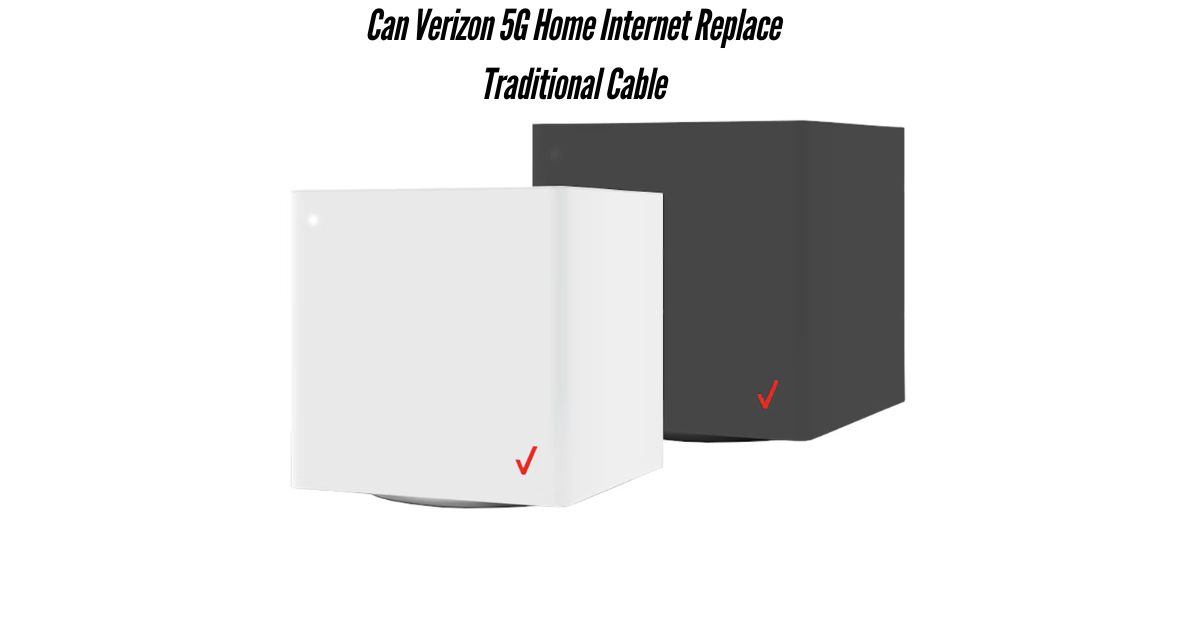In today’s rapidly advancing technology, the way we consume entertainment and connect to the internet is changing faster than ever before. Many households still rely on traditional cable services for their entertainment needs. However, the rise of 5G technology has introduced a new possibility—Verizon 5G Home Internet.
But can Verizon 5G Home Internet truly replace traditional cable? Is it a viable solution for those who want faster speeds, more flexibility, and less reliance on outdated cable subscriptions? In this article, we’ll dive deep into the world of Verizon 5G Home Internet and explore how it stacks up against traditional cable services.
We’ll look at the benefits, potential drawbacks, and what you need to know to make an informed decision. By the end, you’ll have a clearer picture of whether switching to Verizon 5G Home Internet is the right choice for your home and lifestyle.
Key Takeaways
- Verizon 5G Home Internet offers speeds that rival traditional cable, with the flexibility to use it anywhere within the coverage area.
- Traditional cable often comes with high installation fees, hidden charges, and a reliance on outdated infrastructure.
- While Verizon 5G can’t yet match cable in all areas, its potential for faster speeds, fewer restrictions, and lower cost make it a worthy consideration for modern households.
Advantages of Verizon 5G Home Internet
1. Faster Speeds and Low Latency
One of the main reasons Verizon 5G Home Internet is gaining traction is its incredible speed. With speeds that can go up to 1 Gbps, it competes directly with fiber-optic broadband and offers more than enough bandwidth for multiple devices to stream, browse, and game simultaneously.
2. Flexibility and Convenience
Unlike traditional cable, which often requires a set-top box and long installation periods, Verizon 5G Home Internet is wireless. This means that users can enjoy faster internet speeds without needing to rely on a cable network to distribute the signal.
3. No Need for Cables or Installation Fees
Verizon 5G Home Internet eliminates the need for cables and professional installation, making it a perfect solution for renters or those who want a quick and easy setup.
4. The Future of Streaming and Smart Homes
5G technology also supports seamless streaming and smart home integration, giving users more control over their devices and entertainment options. This sets it apart from traditional cable, which is not as versatile.
Limitations and Potential Drawbacks of Verizon 5G Home Internet
1. Coverage and Availability Issues
The primary drawback of Verizon 5G Home Internet is that it isn’t yet available in all areas. Verizon’s 5G network is still expanding, and some remote or rural locations may not have access to the service.
2. Equipment Costs
Although installation is typically free, some users may need to rent or purchase a 5G receiver, adding to the overall cost.
3. Bandwidth Limitations
In certain areas, Verizon’s 5G speeds can drop, and the bandwidth might not be able to support all users simultaneously.
Comparing Verizon 5G Home Internet vs. Traditional Cable (Table)
| Feature | Verizon 5G Home Internet | Traditional Cable |
|---|---|---|
| Speed | Up to 1 Gbps | Varies (5-100 Mbps) |
| Cost | $50–$70/month | $100+/month |
| Installation | Quick Setup, No Cables | Technician Visit |
| Reliability | Generally Reliable | Depends on Area |
| Flexibility | Stream Anywhere | Limited to Cable Box |
| Additional Fees | No Hidden Fees | Hidden Fees Often |
Case Studies: Real-Life Experiences of Switching to Verizon 5G
Case Study 1: A Family’s Perspective
One family made the switch to Verizon 5G Home Internet and saw improved streaming quality, no buffering, and a significant decrease in monthly expenses. However, the downside was the limited availability in their area.
Case Study 2: Tech Enthusiast Review
A tech enthusiast was able to set up Verizon 5G Home Internet in a matter of hours and enjoyed ultra-fast speeds, even when gaming and streaming high-definition content. However, occasional service interruptions in certain areas were noted.
Case Study 3: Comparing Costs of Cable vs. 5G
A comparison of monthly bills showed that switching to Verizon 5G Home Internet reduced the user’s costs by 30%, even after factoring in the price of the router and 5G receiver.
Frequently Asked Questions (FAQs)
Can I get Verizon 5G Home Internet in my area?
Verizon 5G Home Internet is available in select locations. You can check availability by visiting Verizon’s official website.
How much does Verizon 5G Home Internet cost?
Prices for Verizon 5G Home Internet range from $50 to $70 per month, depending on your location and plan.
What speeds can I expect from Verizon 5G Home Internet?
Verizon 5G Home Internet can deliver speeds of up to 1 Gbps, though actual speeds may vary depending on coverage and demand.
Conclusion
Verizon 5G Home Internet presents an exciting alternative to traditional cable, offering faster speeds, more flexibility, and the potential for lower monthly costs. While there are still some areas where Verizon’s 5G network is not yet available, the growing expansion of 5G technology makes it a viable choice for modern homes.
If you’re considering replacing your traditional cable service with Verizon 5G Home Internet, weigh the advantages of speed, cost, and flexibility against the potential limitations, such as coverage availability.
Final Thoughts
In conclusion, making the switch to Verizon 5G Home Internet could be the change your household needs for a more flexible, faster, and cost-effective way to connect to the world. Can Verizon 5G home internet replace traditional cable? With the growing power of 5G technology, the internet landscape is transforming, and Verizon is leading the charge.
Are you ready to embrace the future of internet connectivity? Share your thoughts in the comments below or visit related articles for more insights on how to make the most out of your internet services. Don’t forget to share this article with others who might benefit from this valuable information!
